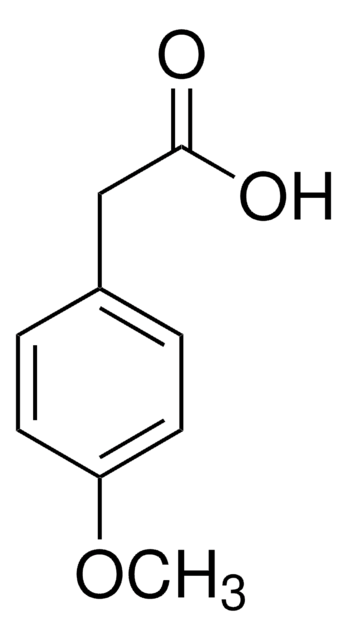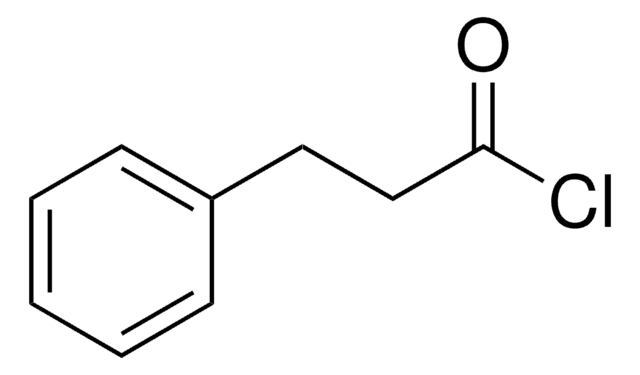D135909
3,4-Dimethoxyphenylacetic acid
98%
Synonym(s):
Homoveratric acid, 3,4-Dimethoxyphenylacetic acid
About This Item
Recommended Products
Assay
98%
form
powder
mp
96-98 °C (lit.)
SMILES string
COc1ccc(CC(O)=O)cc1OC
InChI
1S/C10H12O4/c1-13-8-4-3-7(6-10(11)12)5-9(8)14-2/h3-5H,6H2,1-2H3,(H,11,12)
InChI key
WUAXWQRULBZETB-UHFFFAOYSA-N
Looking for similar products? Visit Product Comparison Guide
Related Categories
Storage Class Code
11 - Combustible Solids
WGK
WGK 3
Flash Point(F)
Not applicable
Flash Point(C)
Not applicable
Personal Protective Equipment
Certificates of Analysis (COA)
Search for Certificates of Analysis (COA) by entering the products Lot/Batch Number. Lot and Batch Numbers can be found on a product’s label following the words ‘Lot’ or ‘Batch’.
Already Own This Product?
Find documentation for the products that you have recently purchased in the Document Library.
Our team of scientists has experience in all areas of research including Life Science, Material Science, Chemical Synthesis, Chromatography, Analytical and many others.
Contact Technical Service







